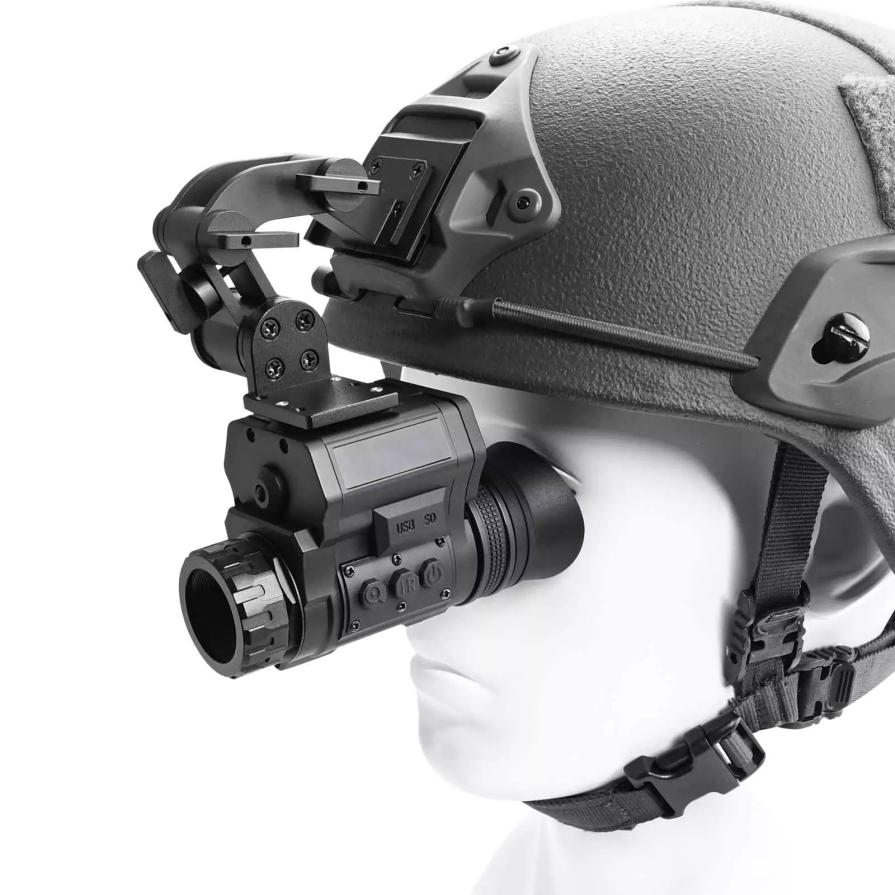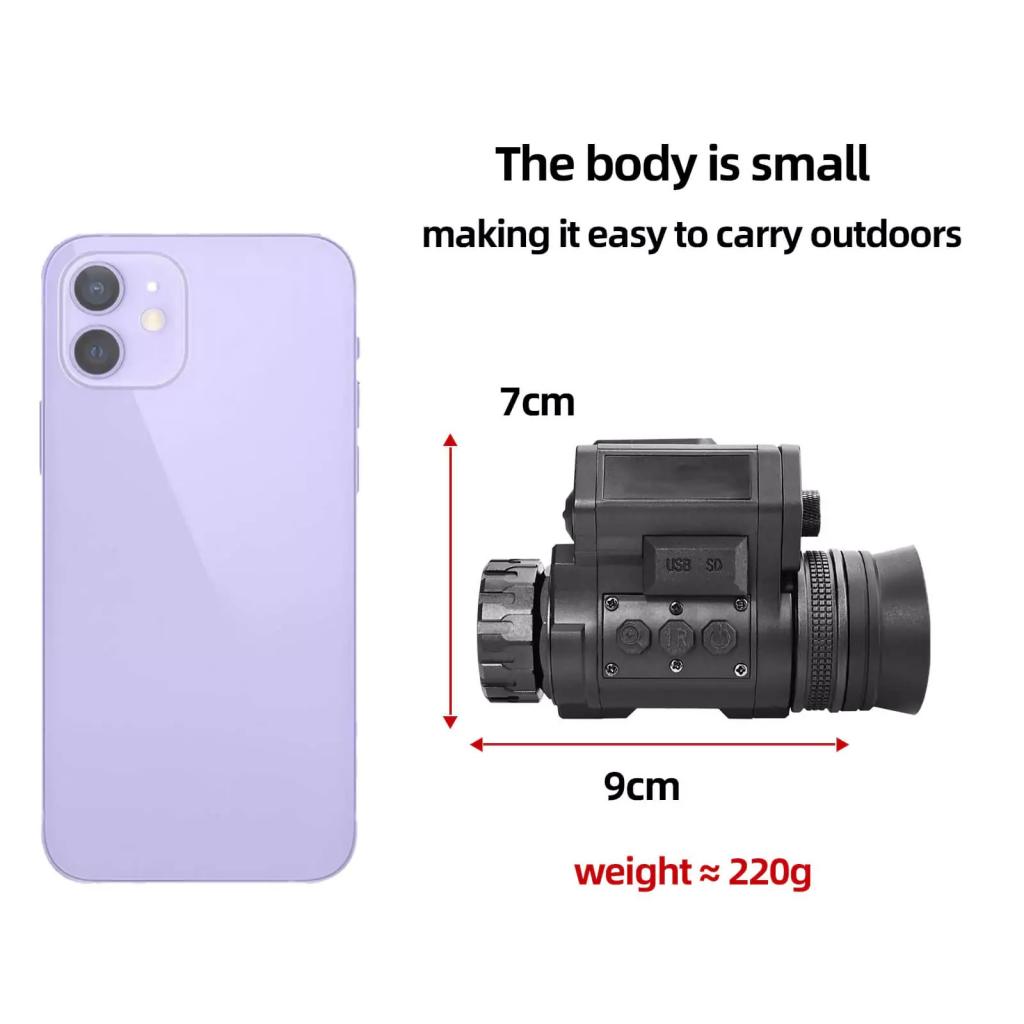
Request


Picture this. You're out in the woods after sunset. Everything's pitch black. But with the right tool, you spot movement clear as day. Night vision turns dark into opportunity. It's not just for movies. Real folks use it for hunting, safety, or fun. So, should you own night vision? Let's dig in. We'll look at what it offers, who benefits, and if it fits your life. By the end, you'll know if it's a smart pick for you.
Night vision lets you see when light's scarce. It amps up faint glows or uses heat to paint pictures. Handy for anyone venturing out at night.
Most devices grab tiny light bits and boost them. Photons hit a screen inside, turning into electrons. Those get multiplied, then shown as green images. Why green? It's easy on eyes in the dark.
Thermal types differ. They catch heat from bodies or objects. No light needed. Shows warm spots in colors like red or white. Great for total blackout.
Devices come in generations. Older ones need some moon. Newer digital ones work better, add features like recording.
Goggles strap on your head. Free hands for tasks. Monoculars are lightweight, one-eye view. Scopes mount on guns for aiming.
Binoculars give depth perception. Thermal imagers spot living things through fog or brush.
Pick based on need. Casual user? Basic monocular. Pro? Advanced thermal.
Not everyone needs it. But certain groups swear by it. Think about your hobbies or job.
Hunters track game at dawn or dusk. Night vision spots deer without spooking them. No flashlight giveaway.
Campers navigate trails safe. See animals or hazards. Builds confidence in wild spots.
Bird watchers catch nocturnal birds. Owls show up vivid.
Worried about bumps in the night? Mount a device outside. Check yard without lights.
Families feel safer. Spot intruders early. Some link to phones for alerts.
In rural areas, watch livestock. Coyotes? Caught in act.
Law enforcement patrols dark alleys. Clear views mean better decisions.
Search teams find lost hikers fast. Heat signatures guide through woods.
Military roots run deep. Civilians adapt for work like security guards.
| User Type | Key Benefit | Example Scenario |
|---|---|---|
| Hunter | Spot game quietly | Tracking at twilight |
| Homeowner | Monitor property | Checking noises outside |
| Professional | Enhance safety | Night patrols or rescues |
See how it fits different lives?

Owning one brings real perks. It's more than cool gadget.
Dark hides dangers. Trips, falls, or threats. Night vision lights the way without bulbs.
For drivers, spot road hazards. Animals cross sudden. See them coming.
In boats, navigate waters at night. Avoid rocks or debris.
Night hikes turn thrilling. See stars and wildlife active.
Fishing after dark? Spot bites easier.
Photography fans capture moonlit scenes. Unique shots stand out.
Having top gear shows you're serious. Friends notice. You lead trips, share tips.
For business, if you guide tours, clients trust you more. Your rep grows as the go-to expert.
Invest in quality. It pays back in experiences and respect.
No tool's perfect. Weigh the cons.
Basic units start low. Advanced thermals hit wallets hard. Think what you need.
Batteries drain quick. Recharge often. Clean lenses to avoid blur.
Storage matters. Keep dry, away from dust.
Some places restrict use. Hunting laws vary. Check local rules.
Privacy concerns. Don't spy on neighbors. Use responsibly.
Tech limits exist. Rain or fog cuts range sometimes.
City dwellers with streetlights? Less need. Casual users might borrow instead.
If budget's tight, start small. Test before big buy.
Ready to shop? Focus on key traits.
Resolution counts. Higher pixels mean sharper views.
Range: How far it sees. 200 yards common for basics.
Battery life: Aim for 5+ hours.
Waterproof? Essential for outdoors.
Hunter? Go thermal for heat detection.
Security? Wide field view.
Budget: Balance cost with use frequency.
Try in store if possible. Feel the weight.
Read reviews from real users. Forums share honest takes.
Good suppliers offer warranties. Quick fixes build loyalty.
Your pick reflects your style. Quality gear elevates your adventures, makes you stand out.
Keep it working well. Simple steps help.
Wipe lenses gentle. Use soft cloth.
Store in case. Avoid extreme heat or cold.
Check batteries regular. Replace as needed.
Proper care means years of service. Your investment lasts.
In hobbies or work, right tools shine. Night vision shows preparedness.
Guide friends on night walks? They remember your setup.
Business wise, if you sell outdoor gear, demo it. Clients see value.
Personal brand grows. You're the adventurer who sees what others miss. Confidence boosts.
Share stories online. Photos or vids from night outings draw followers.
It's about more than seeing. It's standing out.
As a solid supplier of night vision tools, Hemusun Optical Instrument Co., Ltd. focuses on building high-quality devices. Based in China with spots in Beijing and Sichuan, this firm handles research, making, and selling. Their team pushes for better tech in goggles, scopes, and thermals. They offer custom options, wholesale, and retail to fit your needs. With advanced factories and strict quality checks, they deliver reliable gear for outdoors or pro use. Customers praise the clear views and tough builds.
Wrapping up, should you own night vision? It depends on your nights. If dark adventures call, it brings safety, fun, and edge. Weigh costs against gains. For many, it's a game changer. Pick wisely, maintain it, and watch your world expand after sunset.
Yes, if you want to monitor your property in the dark without lights, night vision spots threats early and keeps your family safer.
Hunters often find they should own night vision to track game at dawn or dusk quietly, giving a clear advantage in low light without scaring animals.
Absolutely, photographers should own night vision to capture unique scenes in the dark, seeing details that regular eyes miss for stunning shots.
Beginners should own night vision if they plan frequent night outings, as it builds confidence and safety from the start in unfamiliar dark settings.
Boaters should own night vision to navigate waters safely after dark, spotting hazards like rocks or debris that could cause accidents.